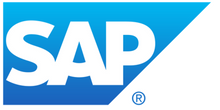Talent for innovation: Getting noticed in a global market incorporates case studies of the 34 companies selected as Technology Pioneers in biotechnology/health, energy/environmental technology, and information technology.
Leonardo Da Vinci unquestionably had it in the 15th century; so did Thomas Edison in the 19th century. But today, "talent for innovation" means something rather different. Innovation is no longer the work of one individual toiling in a workshop. In today's globalised, interconnected world, innovation is the work of teams, often based in particular innovation hotspots, and often collaborating with partners, suppliers and customers both nearby and in other countries.
Innovation has become a global activity as it has become easier for ideas and talented people to move from one country to another. This has both quickened the pace of technological development and presented many new opportunities, as creative individuals have become increasingly prized and there has been greater recognition of new sources of talent, beyond the traditional innovation hotspots of the developed world.
The result is a global exchange of ideas, and a global market for innovation talent. Along with growth in international trade and foreign direct investment, the mobility of talent is one of the hallmarks of modern globalisation. Talented innovators are regarded by companies, universities and governments as a vital resource, as precious as oil or water. They are sought after for the simple reason that innovation in products and services is generally agreed to be a large component, if not the largest component, in driving economic growth. It should be noted that "innovation" in this context does not simply mean the development of new, cutting-edge technologies by researchers.
It also includes the creative ways in which other people then refine, repackage and combine those technologies and bring them to market. Indeed, in his recent book, "The Venturesome Economy", Amar Bhidé, professor of business at Columbia University, argues that such "orchestration" of innovation can actually be more important in driving economic activity than pure research. "In a world where breakthrough ideas easily cross national borders, the origin of ideas is inconsequential," he writes. Ideas cross borders not just in the form of research papers, e-mails and web pages, but also inside the heads of talented people. This movement of talent is not simply driven by financial incentives. Individuals may also be motivated by a desire for greater academic freedom, better access to research facilities and funding, or the opportunity to work with key researchers in a particular field.
Countries that can attract talented individuals can benefit from more rapid economic growth, closer collaboration with the countries where those individuals originated, and the likelihood that immigrant entrepreneurs will set up new companies and create jobs. Mobility of talent helps to link companies to sources of foreign innovation and research expertise, to the benefit of both. Workers who emigrate to another country may bring valuable knowledge of their home markets with them, which can subsequently help companies in the destination country to enter those markets more easily. Analysis of scientific journals suggests that international co-authorship is increasing, and there is some evidence thatcollaborative work has a greater impact than work carried out in one country. Skilled individuals also act as repositories of knowledge, training the next generation and passing on their accumulated wisdom.
But the picture is complicated by a number of concerns. In developed countries which have historically depended to a large extent on foreign talent (such as the United States), there is anxiety that it is becoming increasingly difficult to attract talent as new opportunities arise elsewhere. Compared with the situation a decade ago, Indian software engineers, for example, may be more inclined to set up a company in India, rather than moving to America to work for a software company there. In developed countries that have not historically relied on foreign talent (such as Germany), meanwhile, the ageing of the population as the birth rate falls and life expectancy increases means there is a need to widen the supply of talent, as skilled workers leave the workforce and young people show less interest than they used to in technical subjects. And in developing countries, where there is a huge supply of new talent (hundreds of thousands of engineers graduate from Indian and Chinese universities every year), the worry is that these graduates have a broad technical grounding but may lack the specialised skills demanded by particular industries.
Other shifts are also under way. The increasing sophistication of emerging economies (notably India and China) is overturning the old model of "create in the West, customise for the East". Indian and Chinese companies are now globally competitive in many industries. And although the mobility of talent is increasing, workers who move to another country are less likely to stay for the long-term, and are more likely to return to their country of origin. The number of Chinese students studying abroad increased from 125,000 in 2002 to 134,000 in 2006, for example, but the proportion who stayed in the country where they studied after graduating fell from 85% to 69% over the same period, according to figures from the OECD (see page 10).
What is clear is that the emergence of a global market for talent means gifted innovators are more likely to be able to succeed, and new and unexpected opportunities are being exploited, as this year's Technology Pioneers demonstrate. They highlight three important aspects of the global market for talent: the benefits of mobility, the significant role of diasporas, and the importance of network effects in catalysing innovation.
Brain drain, or gain?
Perhaps the most familiar aspect of the debate about flows of talent is the widely expressed concern about the "brain drain" from countries that supply talented workers. If a country educates workers at the taxpayers' expense, does it not have a claim on their talent? There are also worries that the loss of skilled workers can hamper institutional development and drive up the cost of technical services. But such concerns must be weighed against the benefits of greater mobility.
There are not always opportunities for skilled individuals in their country of birth. The prospect of emigration can encourage the development of skills by individuals who may not in fact decide to emigrate. Workers who emigrate may send remittances back to their families at home, which can be a significant source of income and can help to alleviate poverty. And skilled workers may return to their home countries after a period working abroad, further stimulating knowledge transfer and improving the prospects for domestic growth, since they will maintain contacts with researchers overseas. As a result, argues a recent report from the OECD, it makes more sense to talk of a complex process of "brain circulation" rather than a one-way "brain drain". The movement of talent is not simply a zero-sum gain in which sending countries lose, and receiving countries benefit. Greater availability and mobility of talent opens up new possibilities and can benefit everyone.
Consider, for example, BioMedica Diagnostics of Windsor, Nova Scotia. The company makes medical diagnostic systems, some of them battery-operated, that can be used to provide health care in remote regions to people who would otherwise lack access to it. It was founded by Abdullah Kirumira, a Ugandan biochemist who moved to Canada in 1990 and became a professor at Acadia University. There he developed a rapid test for HIV in conjunction with one of his students, Hermes Chan (a native of Hong Kong who had moved to Canada to study). According to the United States Centers for Disease Control, around one-third of people tested for HIV do not return to get the result when it takes days or weeks to determine. Dr Kirumira and Dr Chan developed a new test that provides the result in three minutes, so that a diagnosis can be made on the spot. Dr Kirumira is a prolific inventor who went on to found several companies, and has been described as "the pioneer of Nova Scotia's biotechnology sector".
Today BioMedica makes a range of diagnostic products that are portable, affordable and robust, making them ideally suited for use in developing countries. They allow people to be rapidly screened for a range of conditions, including HIV, hepatitis, malaria, rubella, typhoid and cholera. The firm's customers include the World Health Organisation. Providing such tests to patients in the developing world is a personal mission of Dr Kirumira's, but it also makes sound business sense: the market for invitro diagnostics in the developing world is growing by over 25% a year, the company notes, compared with growth of only 5% a year in developed nations.
Moving to Canada gave Dr Kirumira research opportunities and access to venture funding that were not available in Uganda. His innovations now provide an affordable way for hospitals in his native continent of Africa to perform vital tests. A similar example is provided by mPedigree, a start-up that has developed a mobile-phone-based system that allows people to verify the authenticity of medicines. Counterfeit drugs are widespread in the developing world: they are estimated to account for 10-25% of all drugs sold, and over 80% in some countries. The World Health Organisation estimates that a fake vaccine for meningitis, distributed in Niger in 1995, killed over 2,500 people. mPedigree was established by Bright Simons, a Ghanaian social entrepreneur, in conjunction with Ashifi Gogo, a fellow Ghanaian. The two were more than just acquaintances having met at Secondary School. There are many high-tech authentication systems available in the developed world for drug packaging, involving radio-frequency identification (RFID) chips, DNA tags, and so forth.
The mPedigree system developed my Mr Gogo, an engineering student, is much cheaper and simpler and only requires the use of a mobile phone — an item that is now spreading more quickly in Africa than in any other region of the world. Once the drugs have been purchased, a panel on the label is scratched off to reveal a special code. The patient then sends this code, by text message, to a particular number. The code is looked up in a database and a message is sent back specifying whether the drugs are genuine. The system is free to use because the drug companies cover the cost of the text messages. It was launched in Ghana in 2007, and mPedigree's founders hope to extend it to all 48 sub-Saharan African countries within a decade, and to other parts of in the developing world.
The effort is being supported by Ghana's Food and Drug Board, and by local telecoms operators and drug manufacturers. Mr Gogo has now been admitted into a special progamme at Dartmouth College in the United States that develops entrepreneurial skills, in addition to technical skills, in engineers. Like Dr Kirumira, he is benefiting from opportunities that did not exist in his home country, and his country is benefiting too. This case of mPedigree shows that it is wrong to assume that the movement of talent is one-way (from poor to rich countries) and permanent. As it has become easier to travel and communications technology has improved, skilled workers have become more likely to spend brief spells in other countries that provide opportunities, rather than emigrating permanently.
And many entrepreneurs and innovators shuttle between two or more places — between Tel Aviv and Silicon Valley, for example, or Silicon Valley and Hsinchu in Taiwan — in a pattern of "circular" migration, in which it is no longer meaningful to distinguish between "sending" and "receiving" countries.
The benefits of a diaspora
Migration (whether temporary, permanent or circular) to a foreign country can be facilitated by the existence of a diaspora, since it can be easier to adjust to a new culture when you are surrounded by compatriots who have already done so. Some observers worry that diasporas make migration too easy, in the sense that they may encourage a larger number of talented individuals to leave their home country than would otherwise be the case, to the detriment of that country.
But as with the broader debate about migration, this turns out to be only part of the story. Diasporas can have a powerful positive effect in promoting innovation and benefiting the home country. Large American technology firms, for example, have set up research centres in India in part because they have been impressed by the calibre of the migrant Indian engineers they have employed in America. Diasporas also provide a channel for knowledge and skills to pass back to the home country.
James Nakagawa, a Canadian of Japanese origin and the founder of Mobile Healthcare, is a case in point. A third-generation immigrant, he grew up in Canada but decided in 1994 to move to Japan, where he worked for a number of technology firms and set up his own financial-services consultancy. In 2000 he had the idea that led him to found Mobile Healthcare, when a friend was diagnosed with diabetes and lamented that he found it difficult to determine which foods to eat, and which to avoid.
The rapid spread of advanced mobile phones in Japan, a world leader in mobile telecoms, prompted Mr Nakagawa to devise Lifewatcher, Mobile Healthcare's main product. It is a "disease selfmanagement system" used in conjunction with a doctor, based around a secure online database that can be accessed via a mobile phone. Patients record what medicines they are taking and what food they are eating, taking a picture of each meal. A database of common foodstuffs, including menu items from restaurants and fast-food chains, helps users work out what they can safely eat. Patients can also call up their medical records to follow the progress of key health indicators, such as blood sugar, blood pressure, cholesterol levels and calorie intake.
All of this information can also be accessed online by the patient's doctor or nutritionist. The system allows people with diabetes or obesity (both of which are rapidly becoming more prevalent in Japan and elsewhere) to take an active role in managing their conditions. Mr Nakagawa did three months of research in the United States and Canada while developing Lifewatcher, which was created with support from Apple (which helped with hardware and software), the Japanese Red Cross and Japan's Ministry of Health and Welfare (which provided full access to its nutritional database).
Japanese patients who are enrolled in the system have 70% of the cost covered by their health insurance. Mr Nakagawa is now working to introduce Lifewatcher in the United States and Canada, where obesity and diabetes are also becoming more widespread — along advanced mobile phones of the kind once only found in Japan. Mr Nakagawa's ability to move freely between Japanese and North American cultures, combining the telecoms expertise of the former with the entrepreneurial approach of the latter, has resulted in a system that can benefit both.
The story of Calvin Chin, the Chinese-American founder of Qifang, is similar. Mr Chin was born and educated in America, and worked in the financial services and technology industries for several years before moving to China. Expatriate Chinese who return to the country, enticed by opportunities in its fast-growing economy, are known as "returning turtles". Qifang is a "peer to peer" (P2P) lending site that enables students to borrow money to finance their education from other users of the site. P2P lending has been pioneered in other countries by sites such as Zopa and Prosper in other countries.
Such sites require would-be borrowers to provide a range of personal details about themselves to reassure lenders, and perform credit checks on them. Borrowers pay above-market rates, which is what attracts lenders. Qifang adds several twists to this formula. It is concentrating solely on student loans, which means that regulators are more likely to look favourably on the company's unusual business model. It allows payments to be made directly to educational institutions, to make sure the money goes to the right place. Qifang also requires borrowers to give their parents' names when taking out a loan, which increases the social pressure on them not to default, since that would cause the family to lose face.
Mr Chin has thus tuned an existing business model to take account of the cultural and regulatory environment in China, where P2P lending could be particularly attractive, given the relatively undeveloped state of China's financial-services market. In a sense, Qifang is just an updated, online version of the community group-lending schemes that are commonly used to finance education in China. The company's motto is that "everyone should be able to get an education, no matter their financial means".
Just as Mr Chin is trying to use knowledge acquired in the developed world to help people in his mother country of China, Sachin Duggal hopes his company, Nivio, will do something similar for people in India. Mr Duggal was born in Britain and is of Indian extraction. He worked in financial services, including a stint as a technologist at Deutsche Bank, before setting up Nivio, which essentially provides a PC desktop, personalised with a user's software and documents, that can be accessed from any web browser.
This approach makes it possible to centralise the management of PCs in a large company, and is already popular in the business world. But Mr Duggal hopes that it will also make computing more accessible to people who find the prospect of owning and managing their own PCs (and dealing with spam and viruses) too daunting, or simply cannot afford a PC at all. Nivio's software was developed in India, where Mr Duggal teamed up with Iqbal Gandham, the founder of Net4India, one of India's first internet service providers. Mr Duggal believes that the "virtual webtop" model could have great potential in extending access to computers to rural parts of India, and thus spreading the opportunities associated with the country's high-tech boom. A survey of the bosses of Indian software firms clearly shows how diasporas can promote innovation.
It found that those bosses who had lived abroad and returned to India made far more use of diaspora links upon their return than entrepreneurs who had never lived abroad, which gave them access to capital and skills in other countries. Diasporas can, in other words, help to ensure that "brain drain" does indeed turn into "brain gain", provided the government of the country in question puts appropriate policies in place to facilitate the movement of people, technology and capital.
Making the connection
Multinational companies can also play an important role in providing new opportunities for talented individuals, and facilitating the transfer of skills. In recent years many technology companies have set up large operations in India, for example, in order to benefit from the availability of talented engineers and the services provided by local companies. Is this simply exploitation of low-paid workers by Western companies?
The example of JiGrahak Mobility Solutions, a start-up based in Bangalore, illustrates why it is not. The company was founded by Sourabh Jain, an engineering graduate from the Delhi Institute of Technology. After completing his studies he went to work for the Indian research arm of Lucent Technologies, an American telecoms-equipment firm. This gave him a solid grounding in mobile-phone technology, which subsequently enabled him to set up JiGrahak, a company that provides a mobile-commerce service called Ngpay.
In India, where many people first experience the internet on a mobile phone, rather than a PC, and where mobile phones are far more widespread than PCs, there is much potential for phone-based shopping and payment services. Ngpay lets users buy tickets, pay bills and transfer money using their handsets. Such is its popularity that with months of its launch in 2008, Ngpay accounted for 4% of ticket sales at Fame, an Indian cinema chain.
The role of large companies in nurturing talented individuals, who then leave to set up their own companies, is widely understood in Silicon Valley. Start-ups are often founded by alumni from Sun, HP, Oracle and other big names. Rather than worrying that they could be raising their own future competitors, large companies understand that the resulting dynamic, innovative environment benefits everyone, as large firms spawn, compete with and acquire smaller ones.
As large firms establish outposts in developing countries, such catalysis of innovation is becoming more widespread. Companies with large numbers of employees and former employees spread around the world can function rather like a corporate diaspora, in short, providing another form of network along which skills and technology can diffuse. The network that has had the greatest impact on spreading ideas, promoting innovation and allowing potential partners to find out about each other's research is, of course, the internet. As access to the internet becomes more widespread, it can allow developing countries to link up more closely with developed countries, as the rise of India's software industry illustrates. But it can also promote links between developing countries.
The Cows to Kilowatts Partnership, based in Nigeria, provides an unusual example. It was founded by Joseph Adelagan, a Nigerian engineer, who was concerned about the impact on local rivers of effluent from the Bodija Market abattoir in Ibadan. As well as the polluting the water supply of several nearby villages, the effluent carried animal diseases that could be passed to humans. Dr Adelagan proposed setting up an effluent-treatment plant.
He discovered, however, that although treating the effluent would reduce water pollution, the process would produce carbon-dioxide and methane emissions that contribute to climate change. So he began to look for ways to capture these gases and make use of them. Researching the subject online, he found that a research institution in Thailand, the Centre for Waste Utilisation and Management at King Mongkut University of Technology Thonburi, had developed anaerobic reactors that could transform agro-industrial waste into biogas. He made contact with the Thai researchers, and together they developed a version of the technology
suitable for use in Nigeria that turns the abattoir waste into clean household cooking gas and organic fertiliser, thus reducing the need for expensive chemical fertiliser. The same approach could be applied across Africa, Dr Adelagan believes. The Cows to Kilowatts project illustrates the global nature of modern innovation, facilitated by the free movement of both ideas and people. Thanks to the internet, people in one part of the world can easily make contact with people trying to solve similar problems elsewhere.
Lessons learned
What policies should governments adopt in order to develop and attract innovation talent, encourage its movement and benefit from its circulation? At the most basic level, investment in education is vital. Perhaps surprisingly, however, Amar Bhidé of Columbia University suggests that promoting innovation does not mean pushing as many students as possible into technical subjects.
Although researchers and technologists provide the raw material for innovation, he points out, a crucial role in orchestrating innovation is also played by entrepreneurs who may not have a technical background. So it is important to promote a mixture of skills. A strong education system also has the potential to attract skilled foreign students, academics and researchers, and gives foreign companies an incentive to establish nearby research and development operations.
Many countries already offer research grants, scholarships and tax benefits to attract talented immigrants. In many cases immigration procedures are "fast tracked" for individuals working in science and technology. But there is still scope to remove barriers to the mobility of talent. Mobility of skilled workers increasingly involves short stays, rather than permanent moves, but this is not yet widely reflected in immigration policy. Removing barriers to short-term stays can increase "brain circulation" and promote diaspora links.
Another problem for many skilled workers is that their qualifications are not always recognised in other countries. Greater harmonisation of standards for qualifications is one way to tackle this problem; some countries also have formal systems to evaluate foreign qualifications and determine their local equivalents. Countries must also provide an open and flexible business environment to ensure that promising innovations can be brought to market. If market access or financial backing are not available, after all, today's global-trotting innovators increasingly have the option of going elsewhere.
The most important point is that the global competition for talent is not a zero-sum game in which some countries win, and others lose. As the Technology Pioneers described here demonstrate, the nature of innovation, and the global movement of talent and ideas, is far more complicated that the simplistic notion of a "talent war" between developed and developing nations would suggest. Innovation is a global activity, and granting the greatest possible freedom to innovators can help to ensure that the ideas they generate will benefit the greatest possible number of people.












